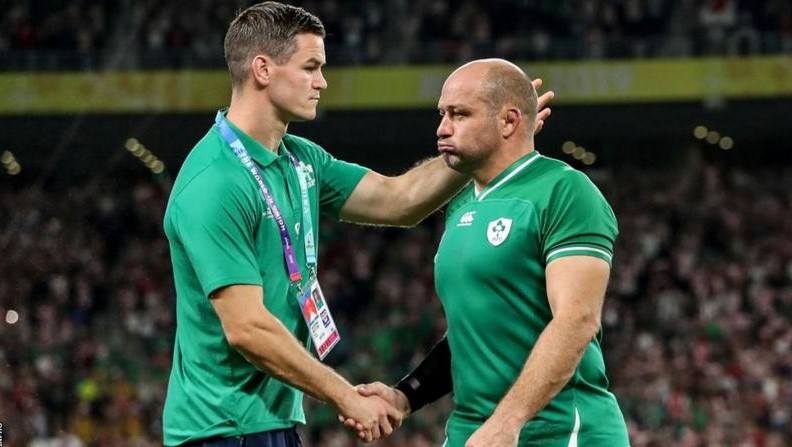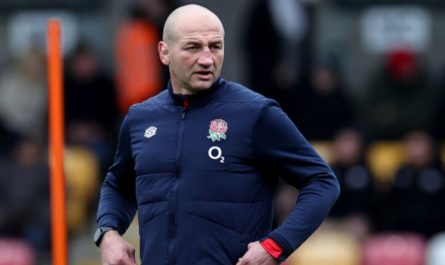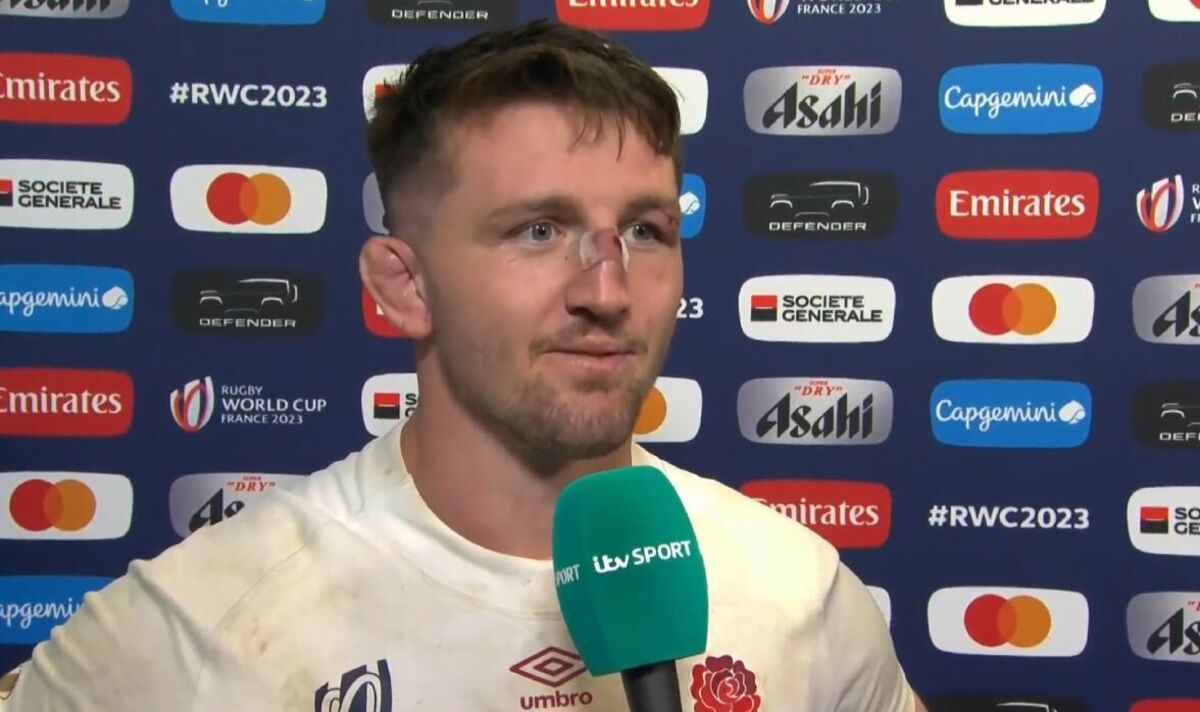It’s hard to believe that Ireland has never won a Rugby World Cup match in the knockout stage.
Given that Andy Farrell’s group will face Romania in Bordeaux on Saturday as the top-ranked team in the world, this is especially puzzling.
However, if you look back only four years, you’ll remember that Joe Schmidt’s team was also at the top of the official global ratings when they took the field in Yokohama to beat Scotland 27-3 in their tournament opener.
A week later, however, in Shizuoka, Ireland was blown out by the famished hosts by a score of 19-12, effectively ending their World Cup hopes.
Ireland made it to their sixth World Cup quarterfinal, but their campaign was doomed below the waterline after a 46-14 loss to the All Blacks, who were soundly thrashed by England in the semi-finals.
Ireland’s performance in this competition was the ninth time they had failed to meet expectations since the first World Cup in 1987.
We’ll try to keep track of what happened thus far so we’re ready in case the nightmare comes again over the next few weeks.
1987: Ireland goes completely amateur.
Ireland, having won the then Five Nations and the Triple Crown in 1985 and finishing second in the championship less than two months before, should have been one of the top northern hemisphere sides at the first tournament in New Zealand and Australia.
Because of the still-seriously-amateur nature of the era, the Irish Rugby Football Union did not allow the squad to play any club rugby following the Five Nations (out of concern for injuries), so the players arrived in Australia and New Zealand noticeably out of shape.
The Irish regulatory body had previously stated its objection to the idea of a World Cup, fearing that it would pave the way toward professionalization of the sport.
A prominent judge from Northern Ireland, Lord Justice Sir Maurice Gibson, and his wife, Lady Cecily, were killed in an IRA bombing crossing the Irish border as the team prepared for the competition. The bombing involved Nigel Carr, David Irwin, and Philip Rainey.
Carr’s 27-year-old rugby career was cut short due to injuries, but Irwin and Rainey made full recoveries and returned to the Ireland side.
After the team landed in New Zealand, coach Mick Doyle suffered a heart attack, although he was still in the dugout for their opening 13-6 loss to Wales in Wellington. This setback came only 51 days after the team had defeated Wales in Cardiff.
That set up a quarterfinal showdown with Australia in Sydney, where the home team jumped out to a fast 24-0 lead on the way to a 33-15 victory. Ireland’s first World Cup experience is now history.
Painful loss to the Wallabies in 1991
Ireland’s quarterfinal match against Australia’s Wallabies at the 1991 event, co-hosted by the Five Nations teams, is still, 32 years later, the closest the Irish have got to reaching a World Cup semi-final.
The home team pounced on Bob Dwyer’s squad when Ulster’s Gordon Hamilton scored a dramatic late try, but the Wallabies rallied with a touchdown from Michael Lynagh in the last seconds to steal a 19-18 victory and advance to the final, where they defeated England.
French defeat over Ireland in South Africa 1995
Four years later, in the final World Cup of the amateur period, Gerry Murphy’s Ireland team was thrashed 36-12 by France in the last eight in Durban, so there was no such near call.
The Irish started the game well and only trailed 15-12 at halftime because to four Eric Elwood penalties, but the French eventually took entire control of the game with to tries from Emile Ntamack and Philippe Saint-Andre and the accuracy of kicker Thierry Lacroix.
After Murphy’s team lost 43-19 to the All Blacks in the first round of pool play, Ireland eliminated Wales from playoff contention with a narrow 24-23 victory at Ellis Park.
After the horror show that was Lens, Ireland left in 1999.
At Lansdowne Road, the Irish took on Australia, the United States, and Romania in the tournament’s pool stage. Wales hosted the event, although games were also played in Ireland, England, Scotland, and France.
After losing 23-3 to Australia in Dublin, Warren Gatland’s squad had to travel to Lens, France to face Argentina in a quarterfinal play-off. This was done to accommodate the tournament’s expansion from 16 to 20 teams.
What happened next, as the Pumas shocked Ireland 28-24, is likely the most humiliating moment in Ireland’s World Cup history.
All of Ireland’s points came through David Humphreys’s boot, and their inability to come up with any other scoring options was summed up when, with time running out, they opted for a 13-man lineout while camped out on the Argentina try line.
Again in 2003, France proves to be a bridge too far.
France eliminated Ireland from the tournament in the quarterfinals again in 2003, just like they had done eight years earlier.
Eddie O’Sullivan’s squad entered the Australia event ranked third in the world after pushing England to a Grand Slam final in the spring. The rankings had only been in place for a few weeks.
After David Humphreys’ last-second drop-goal attempt for the hosts fell just short, the latter had to face the French in the quarterfinals instead of Scotland.
France led 37-0 after 50 minutes of the Melbourne game, and despite an Irish comeback in the fourth quarter, Keith Wood’s squad lost 43-21 in his final international appearance as captain.
Undercooked (2007) Pool sank Ireland
Ireland entered the 2007 tournament with high expectations after their thrilling Croke Park victory against world champions England six months previously, despite their lowly fifth-placed world ranking.
However, O’Sullivan and his team’s tournament performance was disastrous since Ireland once again couldn’t compete with France’s flair or Argentina’s tenacity.
Ireland lost to France (the hosts) by a score of 25–3, and they needed to win against Argentina (the underdogs) a week later to avoid elimination from the competition.
Despite a Brian O’Driscoll try and a following Geordan Murphy touchdown in the first half, the Irish were eliminated after the eventual semifinalists won by a score of 30-15 at the Parc des Princes.
2011: The year of the one that got away
The 2011 World Cup is still the one that slipped away from Ireland.
The Irish, under by new coach Declan Kidney and culminating in a nail-biting victory in Cardiff, regained their form midway through the cycle leading up to the New Zealand tournament and went on to win the 2009 Grand Slam, only the country’s second.
After winning only three of five games in each of the next two Six Nations tournaments, Ireland finally looked ready to deliver in what was supposed to be the great Brian O’Driscoll’s final attempt at World Cup glory after Kidney’s men denied England the Grand Slam in 2011 with a thumping 24-8 victory in Dublin.
Despite playing poorly in their early games, the Irish upset the defending champions Australia 15-6 at Eden Park to finish first in their group and set up a quarterfinal match against Wales, where they were heavy favorites.
However, Wales capitalized on Ireland’s inability to perform under pressure in the knockout stage, increasing their lead from 10-3 at halftime to 22-10 at the final whistle in Wellington.
After the final whistle, a dejected O’Driscoll observed, “You have to suck it up when you haven’t performed on the big stage.”
Injured in 2015 Pumas stun Ireland.
Ireland’s prospects at the 2015 World Cup were promising, what with the methodical Schmidt now at the helm and with the 2014 and 2015 Six Nations trophies already in the bank.
Despite victories over Canada, Romania, and Italy, Ireland’s cup hopes were dashed by a pool-topping 24-9 loss to France.
While center Jared Payne was already out due to a broken foot, the France game ended the tournaments for captain Paul O’Connell, Johnny Sexton, and Peter O’Mahony, and Sean O’Brien was suspended for the quarter-final match against Argentina for punching Pascal Pape.
Ireland fell behind the Pumas 17-0 early on due to a lack of important players. Despite Schmidt’s men closing the gap to 20-17 and 23-20, the Pumas scored 20 consecutive points to seal a 43-20 triumph.
Again in 2019, Ireland’s peak will be missed.
The pattern of Ireland picking themselves up after the World Cup setback persisted. They won the Grand Slam in the spring and then beat the All Blacks at home for the first time in the fall of 2018, propelling them to the top of the world rankings. This follows their historic November 2016 triumph over New Zealand at Soldier Field in Chicago.
With a 12-match home winning streak on the line, Ireland’s 2019 Six Nations campaign got underway with an overwhelming loss to a fired-up England. Ireland’s final loss, a 25-7 thrashing in Cardiff, further added to the growing concerns over the team’s declining form.
Two pre-tournament victories over Wales propelled Ireland to the top of the world rankings for two weeks leading up to the tournament, but a shocking loss to Japan in the pool stage and a drubbing by the All Blacks in the quarterfinals left them looking like a shadow of their 2018 selves.




